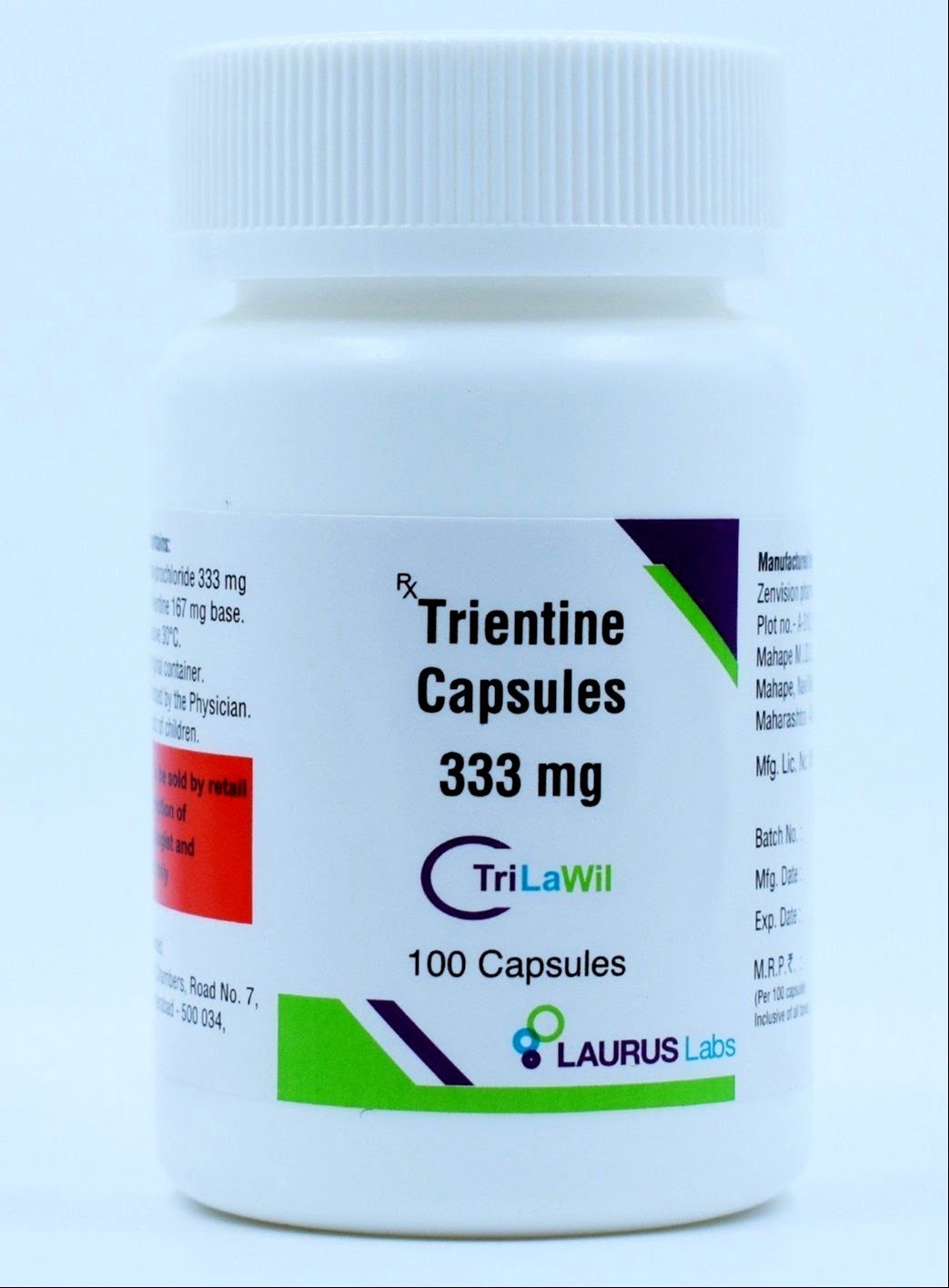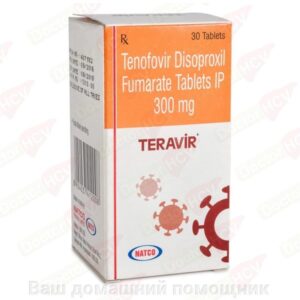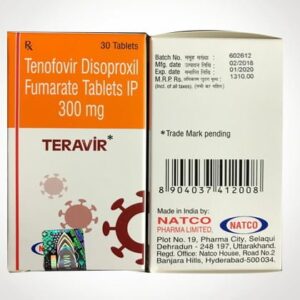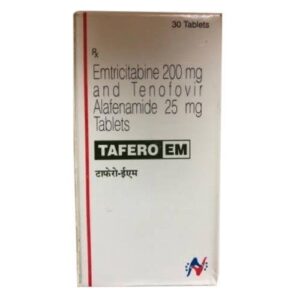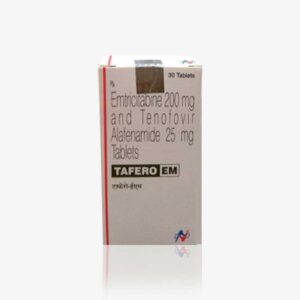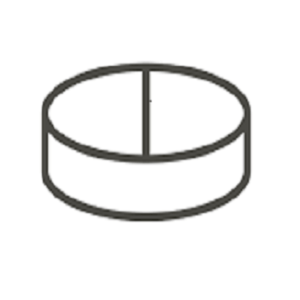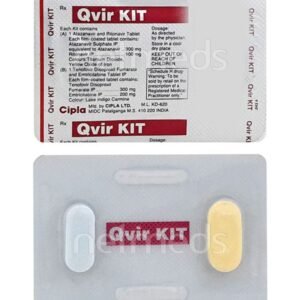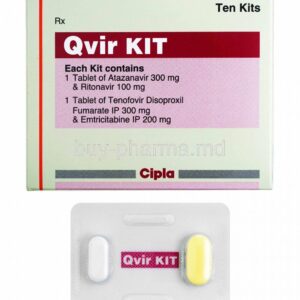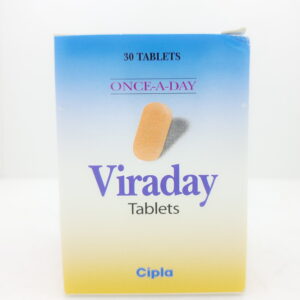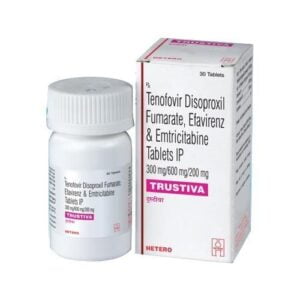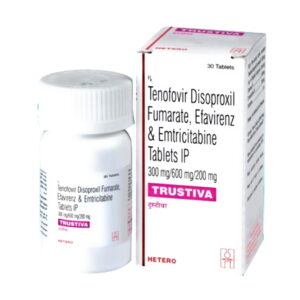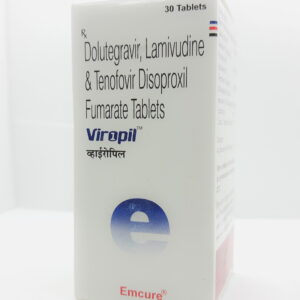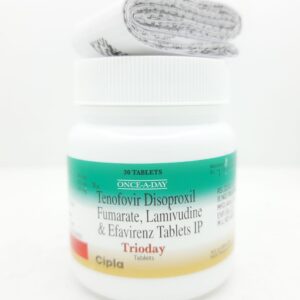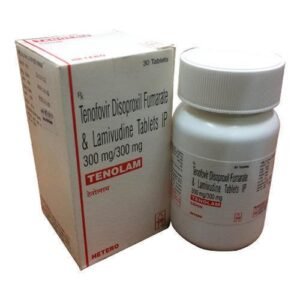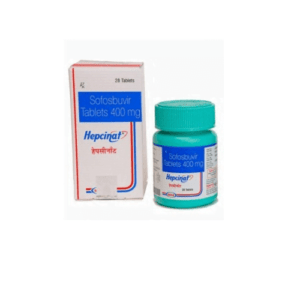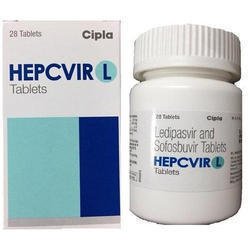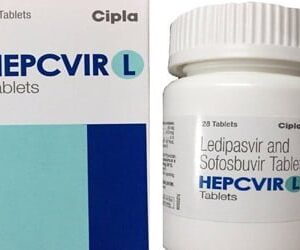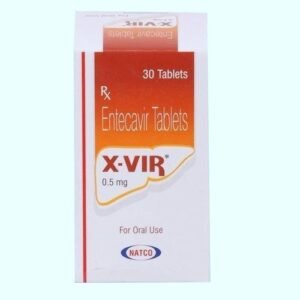Last Updated on September 8, 2024 by admin
Introduction to Trilawil Capsule
Trilawil, generically known as trientine hydrochloride, is a critical medication primarily employed in the treatment of Wilson’s disease. Wilson’s disease is a rare genetic disorder characterized by the accumulation of copper in the body’s tissues, leading to potentially life-threatening conditions if left untreated. Trilawil’s chemical composition is trientine dihydrochloride, and it was developed as an alternative to penicillamine, another chelating agent.
Trientine hydrochloride functions by binding to the excess copper in the body, forming a complex that can be excreted through the urine, thereby reducing copper levels and preventing the damage it causes. The therapeutic significance of Trilawil stems from its efficacy in managing copper concentrations, offering a lifeline to patients with Wilson’s disease and significantly improving their quality of life.
Trilawil is manufactured by LAURUS LABS LTD, now known as Bausch Health Companies Inc., which specializes in the production of pharmaceutical products that address unmet medical needs. The medication is available in capsule form, with each capsule containing 250 mg of trientine hydrochloride. Due to the specific nature of Wilson’s disease, Trilawil is usually prescribed as a long-term treatment, necessitating careful monitoring and adherence to the prescribed regimen.
The introduction of Trilawil into the pharmaceutical market marked a crucial advancement in treating Wilson’s disease, particularly for patients who are intolerant to penicillamine. Its role extends beyond mere symptom management, providing a strategic approach to altering the disease’s progression. In a broader medical context, Trilawil exemplifies the ongoing innovation in orphan drug development, highlighting the importance of tailored solutions for rare and complex conditions.
Uses of Trilawil Capsule
Uses of Trilawil
Trilawil, a brand name for the active ingredient trientine, is a chelating agent primarily used in the treatment of Wilson’s disease, an inherited disorder that causes excessive accumulation of copper in the body. The primary function of Trilawil is to bind with copper ions, forming a complex that the kidneys can more easily excrete, thereby reducing copper levels in the tissues and organs. This process is crucial for mitigating the toxic effects of copper buildup, which can lead to severe liver damage, neurological symptoms, and psychiatric disturbances.
The effectiveness of Trilawil in treating Wilson’s disease cannot be overstated. It serves as an alternative treatment for patients who may not tolerate penicillamine, another chelating agent commonly prescribed for this condition. By offering a different pharmacological approach, Trilawil expands the options available for managing Wilson’s disease, ultimately improving patient outcomes.
Apart from its primary application, Trilawil is sometimes considered for off-label uses. Though less common, it has attracted attention for its potential role in treating other conditions characterized by abnormal metal concentrations. For instance, research has explored its efficacy in managing iron-overload disorders like hemochromatosis. However, such applications are not yet universally validated, and further studies are necessary to fully understand the scope of Trilawil’s therapeutic benefits beyond Wilson’s disease.
Moreover, Trilawil has been investigated in experimental settings for its role in addressing certain neurodegenerative disorders where mismanaged metal homeostasis is a contributing factor. Despite these promising avenues, it is essential for healthcare providers to rely on evidence-based guidelines and clinical trials to ensure patient safety and efficacy when considering off-label prescriptions of Trilawil.
Side Effects of Trilawil Capsule
Side effects are unwanted symptoms caused by medicines. Even though all drugs cause side effects, not everyone gets them.
Common
- Abdominal pain
- Change of bowel movements
- Rash
- Alopecia
- Mood swings
- Difficulty in moving
- Muscle pain
Serious
- Iron deficiency anemia
- Hypersensitivity skin reactions
Directions for Use
When it comes to using Trilawil, it is crucial to adhere strictly to the guidelines provided by your healthcare provider to maximize its therapeutic benefits and minimize potential side effects. Trilawil, administered orally, is often prescribed to patients with Wilson’s disease to aid in the reduction of excess copper in the body. The dosage of Trilawil will vary based on multiple factors, including the patient’s age, weight, and the severity of the condition.
Adults and children above the age of six typically start with a standard dosage, which can be adjusted over time based on the patient’s response to the treatment. It is essential to take Trilawil on an empty stomach, at least one hour before or two hours after meals, as food can interfere with the absorption of the medication. Consistency in your dosage schedule is paramount to its effectiveness. Therefore, set specific times each day for taking this medication to help you remember.
If a dose is missed, take it as soon as you remember, unless it is nearly time for your next dose. In such cases, skip the missed dose and resume your regular schedule. Do not double the doses to compensate for the missed one. Maintaining consistent copper levels in the body is key, so predictability in your regimen is highly recommended.
Special considerations must be taken into account for children under the age of six and older adults, whose body’s drug-handling capacity may differ. Always consult with your healthcare provider for personalized instructions about dosage and administration specific to these age groups.
Finally, it is critical not to adjust your dosage or discontinue using Trilawil without your healthcare provider’s approval. Regular monitoring through blood tests and clinical assessments will ensure the medication’s effectiveness and your safety. If you experience any unusual symptoms or side effects, contact your healthcare professional promptly for guidance.
Benefits of Trilawil
Trilawil, also known by its generic name trientine, has been established as an effective treatment for Wilson’s disease, a genetic disorder that causes excessive accumulation of copper in the liver, brain, and other vital organs. By facilitating the excretion of excess copper through urine, Trilawil helps in mitigating the primary symptoms associated with Wilson’s disease, including hepatic dysfunction and neuropsychiatric manifestations.
The physical benefits of using Trilawil are substantial. In the short term, patients often experience a rapid decrease in copper levels, which can alleviate acute symptoms such as jaundice, abdominal pain, and fatigue. As a result, patients may find significant relief from the debilitating effects of the disorder, leading to an improved overall quality of life. Moreover, by reducing copper accumulation, Trilawil helps in preventing further damage to the liver and other organs.
In the long term, Trilawil’s benefits extend to the stabilization of health conditions linked to Wilson’s disease. Continual usage of the medication can avert the progression of organ damage, particularly in the liver. This stabilization is crucial for maintaining liver functionality and preventing severe conditions such as cirrhosis. Additionally, patients may notice improvements in neurological symptoms, such as tremors, difficulty in speech, and coordination problems, thereby enhancing their daily functioning and independence.
Regular administration of Trilawil also contributes to better health outcomes by sustaining copper levels within the normal range. This can lead to a marked decrease in hospitalizations and medical interventions associated with Wilson’s disease complications. The therapeutic benefits of Trilawil make a compelling case for its ongoing use under medical supervision, highlighting its essential role in the management and treatment of Wilson’s disease.
Storage of Trilawil
Maintaining the efficacy of Trilawil requires adherence to specific storage guidelines. Trilawil should be stored at room temperature, ideally between 20°C to 25°C (68°F to 77°F). It is crucial to keep the medication in a location where temperature fluctuations are minimal, as excessive heat or cold can compromise its effectiveness.
In addition to temperature control, protecting Trilawil from moisture and light is essential. The medication should be kept in its original tightly sealed container, which is designed to protect it from these elements. Avoid storing it in places with high humidity, such as bathrooms, as moisture can degrade the medication over time.
Proper handling of Trilawil includes ensuring that it is kept out of reach of children and pets to prevent accidental ingestion. It should also be stored in a secure place to avoid accidental spillage or contamination. If the medication comes into contact with foreign substances, it may lose its potency and should not be used.
When it comes to expired or unused Trilawil, it is important to follow appropriate disposal methods. Do not flush it down the toilet or pour it into a drain unless instructed by a professional. Instead, consult with a pharmacist or local waste disposal company about how to properly dispose of unused medication. Many communities have medication take-back programs or special disposal instructions for pharmaceuticals.
By following these best practices, individuals can ensure that their Trilawil retains its efficacy and remains safe for use. Proper storage and handling not only preserve the medication’s effectiveness but also contribute to overall safety by preventing accidental misuse or environmental contamination.
Medicinal Benefits and Mechanism of Action
Trilawil, known generically as trientine, serves as a pivotal treatment option for addressing the debilitating effects of Wilson’s disease—an autosomal recessive disorder marked by excessive copper accumulation in tissues. The principal medicinal benefit of Trilawil stems from its unique ability to chelate copper ions, facilitating the mobilization and excretion of this metal from the body through the urine. This action is imperative for patients whose primary therapeutic need is the reduction of toxic copper levels that otherwise lead to hepatic, neurological, and psychiatric complications.
The efficacy of Trilawil lies in its pharmacokinetics and pharmacodynamics. Upon ingestion, Trilawil is absorbed into the bloodstream and exerts its chelating action by binding to free copper ions, forming a complex that is subsequently excreted renally. The precise chelation process of Trilawil involves the formation of stable cupric complexes, ensuring reduced free copper concentrations and preventing further damage to vital tissues.
Moreover, Trilawil’s pharmacodynamic properties involve the inhibition of copper absorption from the gastrointestinal tract, further assisting in the reduction of copper overload. By consistently lowering copper levels, Trilawil alleviates the clinical symptoms of Wilson’s disease, including hepatic dysfunction, neurological impairment, and psychiatric disturbances. Patients generally observe a notable improvement in liver function tests and a reduction in neurological symptoms, attributed directly to Trilawil’s therapeutic action.
While Trilawil is principally used for Wilson’s disease management, its role extends to cases where standard treatments, such as penicillamine, are contraindicated due to adverse reactions. The dual benefit of Trilawil —its copper chelation capability and relatively favorable side effect profile—makes it an essential drug in the therapeutic arsenal against this rare but severe metabolic disorder. Constant monitoring of copper levels and periodic liver function assessments are imperative for ensuring the drug’s continued efficacy and adjusting dosages as needed.
Warnings and Precautions
When using Trilawil, it is crucial to be aware of the associated warnings and precautions. Understanding these risks can help mitigate potential adverse effects and ensure the medication is used safely and effectively.
Trilawil may present risks for individuals with specific health conditions. For example, patients with kidney or liver diseases should exercise caution and discuss these issues with their healthcare provider before initiating treatment. This medication could potentially exacerbate these conditions or interfere with their management.
Furthermore, Trilawil has particular contraindications. It should not be used by individuals who have demonstrated hypersensitivity to penicillamine or any inactive ingredients contained in Trilawil. Allergic reactions can range from mild symptoms like skin rashes to severe, life-threatening anaphylaxis.
Special considerations should also be given to pregnant and breastfeeding women. Trilawil can cross the placenta, posing risks to fetal development. Therefore, it should only be used during pregnancy if the potential benefits justify the potential risks to the fetus. Breastfeeding women should be cautious as well, as the medication can be excreted in breast milk, potentially affecting the nursing infant.
Older adults may have an increased sensitivity to Trilawil. Age-related kidney and liver function decline can influence the body’s ability to process the medication, potentially leading to increased side effects. Ample discussion with healthcare providers is recommended for older adults to assess the benefits and risks of initiating Trilawil therapy.
Overall, while Trilawil offers therapeutic benefits, these must be weighed against the potential risks and precautions, ensuring that it is utilized safely across various patient populations.
Drug Interactions and Checking Tools
Understanding the potential drug interactions of Trilawil (trientine hydrochloride) is crucial for ensuring the safety and efficacy of the medication. Trilawil is used to treat Wilson’s disease, a condition in which excessive copper builds up in the body. Proper management of this condition requires careful monitoring of drug interactions to avoid adverse effects. Some known interactions include commonplace over-the-counter medications and prescription drugs, as well as certain foods and beverages.
Among the drugs that may interact with Trilawil are iron supplements, zinc supplements, and multivitamins containing iron and zinc. These substances can significantly reduce the effectiveness of Trilawil by hindering its absorption. To mitigate this interaction, it is recommended to take Trilawil at least two hours apart from these supplements. Similarly, antacids containing aluminum, magnesium, or calcium may also impair Trilawil’s absorption, necessitating careful timing when taken concurrently.
In addition to supplements, certain foods and drinks may also impact the effectiveness of Trilawil. Dairy products, including milk and cheese, contain calcium, which can interact with the medication. It is advisable to consume such products at a different time to avoid interference. Furthermore, alcohol consumption should be kept to a minimum or avoided, as it may exacerbate certain side effects of Trilawil.
To ensure comprehensive safety, utilizing drug interaction checker tools is highly recommended. These online tools can provide detailed information on potential interactions with other medications, supplements, and foods. Several reliable platforms such as WebMD, Drugs.com, and the Mayo Clinic offer user-friendly interfaces that allow for quick searches. Simply inputting the name of Trilawil along with other medications or substances can help identify and prevent harmful interactions effectively.
In conclusion, being well-informed about the various drug interactions of Trilawil and employing drug interaction checker tools can significantly contribute to the safe and effective management of Wilson’s disease. This proactive approach can help mitigate risks and enhance the quality of life for individuals undergoing treatment.
Possible Side Effects of Trilawil
Trilawil (trientine hydrochloride) is a medication primarily used to treat Wilson’s disease, which is characterized by excessive copper accumulation in the body. While Trilawil is effective in managing this condition, like all medications, it can cause side effects. Patients and healthcare providers must be vigilant in monitoring for and responding to these adverse reactions.
Common side effects of Trilawil can include gastrointestinal disturbances such as nausea, vomiting, and diarrhea. Some individuals may experience abdominal pain or a loss of appetite. These side effects are usually mild to moderate and may diminish as the body adjusts to the medication. Hydration and dietary adjustments can sometimes help mitigate these symptoms, but persistently severe cases should be brought to medical attention.
There are also less common but more serious side effects associated with Trilawil. Anemia, neutropenia, and thrombocytopenia, conditions that affect the blood, have been reported. Symptoms to watch for include unusual bruising or bleeding, signs of infection like fever or sore throat, and extreme fatigue. Immediate medical consultation is necessary if any of these symptoms occur, as they may indicate a significant impact on blood health.
Rare adverse reactions can also occur, including hypersensitivity or allergic reactions. Symptoms of an allergic reaction may include rash, itching, swelling, severe dizziness, and trouble breathing. Such reactions require urgent medical intervention to prevent complications.
Monitoring is essential when taking Trilawil, and patients should promptly report any unusual symptoms to their healthcare provider. This extends to both common and rare side effects. Open communication ensures that any emerging issues can be managed rapidly, potentially adjusting the treatment plan to better suit the patient’s needs.
Furthermore, healthcare providers may recommend regular blood tests to monitor for potential hematologic side effects, and adjustments to the medical regimen may be necessary based on these results. Proper reporting and management of side effects are crucial for the safe and effective use of Trilawil.
How to Use Trilawil Effectively
Using Trilawil effectively requires adherence to certain best practices, timing, and lifestyle adjustments to maximize the medication’s efficacy. Trilawil, also known by its generic name trientine, is primarily prescribed for conditions such as Wilson’s disease, where it helps to remove excess copper from the body. To achieve optimal results, it is crucial to follow your healthcare provider’s guidance meticulously.
One of the critical factors in using Trilawil effectively is timing. Typically, Trilawil should be taken on an empty stomach, at least one hour before or two hours after meals, as food can interfere with its absorption. Consistency in the timing of doses helps maintain the right levels of the medication in your body, thereby ensuring its effectiveness.
Dietary recommendations play a significant role when taking Trilawil. Since certain foods and supplements can hinder the medication’s absorption and effectiveness, it is advisable to avoid products high in iron and zinc around the time of your dose. These elements can bind with Trilawil, reducing its efficacy. Maintaining a balanced diet low in copper-rich foods, such as shellfish, nuts, and chocolate, enhances the treatment’s success.
Lifestyle changes can further augment the effectiveness of Trilawil. Avoiding alcohol and smoking is recommended as these can put additional strain on the liver, which could potentially exacerbate the condition being treated. Regular physical activity and staying hydrated also support overall health and may aid the medication’s efficacy.
Adherence to the prescribed treatment regimen is essential for success. Set reminders or alarms to help remember to take the medication on time. Using a pill organizer can also be beneficial. It’s important to communicate openly with your healthcare provider about any challenges faced during the treatment. If you miss a dose, take it as soon as you remember unless it’s almost time for your next dose. Do not double up to make up for the missed dose.
By following these strategies, patients can maximize the benefits of Trilawil and effectively manage their condition. Regular consultations with healthcare professionals ensure individualized adjustments and long-term treatment success.
General Safety Advice
Ensuring the safe use of Trilawil, a chelating agent commonly prescribed for Wilson’s disease, is crucial for the effectiveness of the treatment and the well-being of the patient. Below are essential safety tips to consider while using Trilawil:
Firstly, it is imperative not to share Trilawil with others, even if they exhibit similar symptoms. This medication is prescribed based on individual medical needs and specific conditions, meaning its use should be restricted to the person for whom it is prescribed. Sharing medication can lead to inappropriate dosages, adverse reactions, or ineffective treatment.
Secondly, always be mindful of the expiration date on the medication packaging. Consuming expired Trilawil can not only diminish its efficacy but may also pose health risks. Regularly check the expiration date and dispose of any medication that is out of date in a safe, recommended manner.
Furthermore, it is essential to keep Trilawil out of reach of children. Storing it in a secure, child-proof location helps prevent accidental ingestion, which could cause severe harm or even be life-threatening. Educate family members about the importance of such precautions to foster a safe home environment.
In the event of an overdose, immediate medical attention is required. Symptoms of overdose may include severe nausea, vomiting, gastrointestinal distress, dizziness, or cardiovascular issues. Contact emergency services or go to the nearest emergency room promptly. Quick and appropriate action can substantially mitigate the consequences of an overdose.
Finally, regular medical check-ups are paramount while on Trilawil. Follow-up appointments allow healthcare providers to monitor the drug’s effectiveness, adjust dosages as needed, and identify any potential side effects early on. Open communication with your healthcare provider ensures a customized treatment plan and optimizes the benefits of Trilawil.
Adhering to these safety measures enhances the therapeutic outcomes of Trilawil while minimizing potential risks, ultimately supporting patient health and wellness.
Safety Advices for Trilawil Capsule

Pregnancy
Do not take Trilawil capsule if you are pregnant because this may harm the unborn baby. Inform your physician if you are pregnant, suspecting pregnancy, or planning to get pregnant during the treatment.

Breast Feeding
Breastfeeding is not recommended in patients taking Trilawil capsule because the medicine passes into the breast milk in small amounts and may harm your baby.

Lungs
It is unknown whether Trilawil capsule can be used in patients with lung disorders. Consult your doctor if you have any lung diseases before starting the treatment.

Liver
It is unknown whether Trilawil capsule can be used in patients with liver disorders. Consult your doctor if you have any liver diseases before starting the treatment.
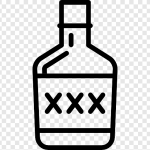
Alcohol
It is unknown whether consuming alcohol is safe when taking Trilawil capsule. Inform your physician if you are an alcoholic before starting the treatment.

Driving
Trilawil capsule does not affect the ability to drive or operate heavy machinery if you feel dizzy after taking the medicine. Consult your doctor for more advice.
Dietary Considerations while on Trilawil
When undergoing treatment with Trilawil, it is imperative to adhere to specific dietary guidelines to enhance the medication’s effectiveness. Trilawil, known generically as trientine, is primarily used for patients with Wilson’s disease, a condition characterized by excessive copper accumulation in the body. Managing dietary intake of copper is critical to complement Trilawil’s therapeutic effects and ensure optimal disease control.
Patients on Trilawil should avoid foods high in copper to prevent further retention. This includes liver, shellfish, mushrooms, nuts, and chocolate. Reducing the intake of copper-rich food can significantly aid in lowering copper levels in the body, thereby allowing Trilawil to function more effectively. In addition to avoiding these foods, it is also recommended to limit the consumption of whole grains and certain vegetables, such as potatoes and legumes, due to their moderate copper content.
Beyond restricting certain foods, incorporating a balanced diet rich in essential nutrients can support overall health and complement treatment. Emphasis on a diet high in calcium, zinc, and iron can play a supportive role. These minerals can inhibit copper absorption, thereby aiding Trilawil’s function. Foods such as dairy products, green leafy vegetables, and lean meats are advisable for patients to include regularly.
Supplements may also be a vital part of dietary management for those on Trilawil. Zinc supplements are particularly beneficial as they help block copper absorption in the intestine. It is essential to consult with a healthcare provider before initiating any supplement regimen to tailor the dosage and ensure compatibility with Trilawil.
In addition to focusing on specific nutrients, hydration is another crucial element. Drinking ample water can assist in the excretion of copper through urine. Patients should aim to maintain adequate fluid intake to support the body’s detoxification processes.
Patients might find benefit from working with a dietitian experienced in managing Wilson’s disease. This personalized approach can ensure that dietary changes align with the treatment plan and contribute to overall health and well-being while on Trilawil.
FAQs About Trilawil capsule
Q1: What is Trilawil used for?
A: Trilawil is used to treat Wilson’s disease, a genetic disorder where excess copper builds up in the body. It helps remove excess copper by binding to it and excreting it through the urine.
Q2: When is the best time to take Trilawil?
A: Trilawil should be taken on an empty stomach, at least 1 hour before or 2 hours after meals. It should also be spaced apart from other medications, especially iron supplements or food high in metals like zinc.
Q3: What are the long-term side effects of Trilawil?
A: Long-term use of Trilawil may lead to iron deficiency anemia, low copper levels, gastrointestinal issues, or other blood-related disorders. Regular monitoring of copper levels, liver function, and blood counts is essential during long-term therapy.
Q4: Can you provide a review of Trilawil?
A: Patient reviews typically cite Trilawil as an effective treatment for Wilson’s disease, but some patients report gastrointestinal side effects such as nausea and stomach upset. Because Wilson’s disease is rare, experiences can vary, and reviews are often based on long-term monitoring.
Q5: What are the common uses of Trilawil?
A: The primary use of Trilawil is the management of Wilson’s disease to reduce excess copper levels. It is an alternative to penicillamine, another chelating agent, particularly for patients who cannot tolerate penicillamine.
Q6: What is the recommended dosage of Trilawil?
A: The typical adult dosage of Trilawil is 750 to 1,250 mg daily, divided into two to four doses. Dosage varies based on patient needs, weight, and copper levels, and it must be adjusted by a healthcare provider.
Q7: Is Trilawil safe to use?
A: Trilawil is generally considered safe for long-term use in patients with Wilson’s disease when taken as prescribed. However, it requires regular monitoring due to its potential impact on blood counts and mineral levels, especially copper and iron.
Q8: Does Trilawil cure HIV infection?
A: No, Trilawil does not cure HIV infection. It is a chelating agent used for Wilson’s disease and has no antiviral properties.
Q9: Is Trilawil safe in pregnancy?
A: Trilawil should only be used in pregnancy if the benefits outweigh the risks, as there is limited data on its safety during pregnancy. Pregnant women with Wilson’s disease should consult their healthcare provider before using this medication.
Q10: Can Trilawil be used in children?
A: Yes, Trilawil can be used in pediatric patients with Wilson’s disease, but the dosage will be carefully adjusted based on weight and age by a healthcare provider.
Q11: What if I miss a dose of Trilawil?
A: If you miss a dose of Trilawil, take it as soon as you remember. If it’s almost time for your next dose, skip the missed dose and resume your regular schedule. Do not double the dose to make up for the missed one.
Q12: Can I stop taking Trilawil?
A: You should not stop taking Trilawil without consulting your healthcare provider. Stopping the medication can cause a dangerous buildup of copper in your body, leading to serious complications from Wilson’s disease.
Q13: What are the uses of Trilawil?
A: In addition to treating Wilson’s disease, Trilawil may be used in cases where copper overload is present or for patients who are unable to tolerate penicillamine, another common treatment for Wilson’s disease.
Q14: Are there alternative medications to Trilawil?
A: Alternatives to Trilawil include Penicillamine and Zinc Acetate. Penicillamine is another chelator, while zinc interferes with copper absorption in the body.
Q15: Can Trilawil interact with other medications?
A: Yes, Trilawil can interact with iron supplements, antacids, and other medications containing metal ions, which can reduce its effectiveness. Always inform your healthcare provider of all the medications you are taking.
Q16: How long does it take for Trilawil to show results?
A: Trilawil begins working as it binds to copper and helps excrete it through urine. However, it may take several months for copper levels to stabilize, and long-term treatment is usually necessary to manage the condition effectively.
Q17: What precautions should be taken while using Trilawil?
A: Patients using Trilawil should have regular blood tests to monitor copper levels and watch for signs of anemia or other side effects. Avoid taking iron supplements or antacids without consulting your healthcare provider.
Q18: Where can I get more information about Trilawil?
A: For more detailed information, consult the FDA label for Syprine or visit reputable sources like Drugs.com or MedlinePlus.
Q19: What is the success rate of Trilawil in treating Wilson’s disease?
A: Trilawil has a high success rate when used consistently as part of a long-term treatment plan for Wilson’s disease. Most patients see significant improvement in copper levels and related symptoms, though continuous monitoring is essential.
Q20: Is Trilawil safe for long-term use?
A: Trilawil is safe for long-term use when regularly monitored by healthcare providers. Long-term therapy may lead to mineral imbalances such as iron deficiency anemia, which requires periodic adjustments to the treatment.
Q21: Can I drink alcohol while taking Trilawil?
A: Alcohol can potentially impact liver function, which is a concern for patients with Wilson’s disease. It’s important to discuss alcohol consumption with your healthcare provider while taking Trilawil.
Q22: Can Trilawil cause weight gain?
A: Weight gain is not a common side effect of Trilawil. However, other side effects like gastrointestinal upset may occur.
Q23: Are there any dietary restrictions while taking Trilawil?
A: Patients taking Trilawil should avoid high-copper foods, such as shellfish, nuts, and chocolate, as they can worsen Wilson’s disease. Iron supplements should also be avoided unless prescribed by your doctor.
Q24: How does Trilawil work in the body?
A: Trilawil works by binding to excess copper in the bloodstream, forming a complex that is excreted through urine, helping to lower dangerous copper levels in Wilson’s disease patients.
Q25: How should Trilawil be stored?
A: Trilawil should be stored at room temperature away from moisture and heat. Keep the bottle tightly closed when not in use and out of reach of children.
References:
This FAQ provides essential information about Syprine (Trilawil), its uses, side effects, and safety measures. Always consult with a healthcare provider for personalized advice.
References:
- Trientine dihydrochloride Tillomed 250 mg capsules, hard – Summary of Product Characteristics (SmPC) – (emc). www.medicines.org.uk. [cited 2023 Apr 3]. Available from: https://www.medicines.org.uk/emc/product/11626/smpc
- HIGHLIGHTS OF PRESCRIBING INFORMATION. Food and Drug Administration – Trientine hydrochloride. [revised on 2022] [cited 2023 Apr 3]. Available from: https://www.accessdata.fda.gov/drugsatfda_docs/label/2022/215760s000lbl.pdf
- Goodman & Gilman’s, The Pharmacological Basis of Therapeutics, Environmental toxicology: Carcinogenesis and Heavy metals, 12th edition, 2011, 1875.

